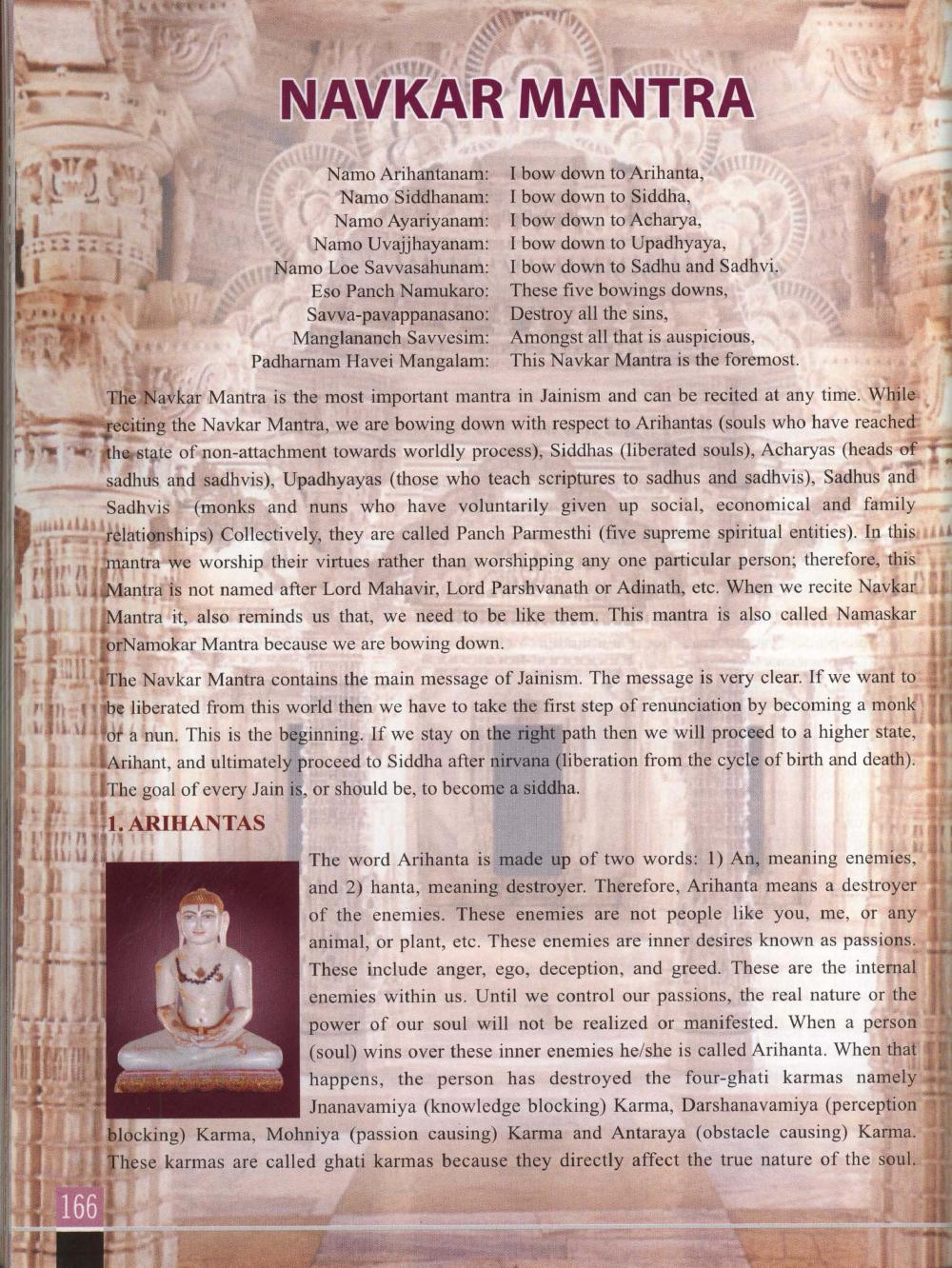________________
NAVKAR MANTRA
Namo Arihantanam: I bow down to Arihanta,
Namo Siddhanam: I bow down to Siddha,
Namo Ayariyanam: I bow down to Acharya,
Namo Uvajjhayanam: I bow down to Upadhyaya, Namo Loe Savvasahunam: I bow down to Sadhu and Sadhvi.
Eso Panch Namukaro: These five bowings downs,
Savva-pavappanasano: Destroy all the sins,
Manglananch Savvesim: Amongst all that is auspicious,
Padharnam Havei Mangalam: This Navkar Mantra is the foremost. The Navkar Mantra is the most important mantra in Jainism and can be recited at any time. While reciting the Navkar Mantra, we are bowing down with respect to Arihantas (souls who have reached the state of non-attachment towards worldly process), Siddhas (liberated souls), Acharyas (heads of sadhus and sadhvis), Upadhyayas (those who teach scriptures to sadhus and sadhvis), Sadhus and Sadhvis (monks and nuns who have voluntarily given up social, economical and family relationships) Collectively, they are called Panch Parmesthi (five supreme spiritual entities). In this
mantra we worship their virtues rather than worshipping any one particular person; therefore, this w Mantra is not named after Lord Mahavir, Lord Parshvanath or Adinath, etc. When we recite Navkar
Mantra it, also reminds us that, we need to be like them. This mantra is also called Namaskar forNamokar Mantra because we are bowing down.
The Navkar Mantra contains the main message of Jainism. The message is very clear. If we want to 11 be liberated from this world then we have to take the first step of renunciation by becoming a monk
for a nun. This is the beginning. If we stay on the right path then we will proceed to a higher state, Arihant, and ultimately proceed to Siddha after nirvana (liberation from the cycle of birth and death). The goal of every Jain is, or should be, to become a siddha. 1. ARIHANTAS
The word Arihanta is made up of two words: 1) An, meaning enemies, and 2) hanta, meaning destroyer. Therefore, Arihanta means a destroyer of the enemies. These enemies are not people like you, me, or any animal, or plant, etc. These enemies are inner desires known as passions. These include anger, ego, deception, and greed. These are the internal enemies within us. Until we control our passions, the real nature or the power of our soul will not be realized or manifested. When a person (soul) wins over these inner enemies he/she is called Arihanta. When that happens, the person has destroyed the four-ghati karmas namely
Jnanavamiya (knowledge blocking) Karma, Darshanavamiya (perception blocking) Karma, Mohniya (passion causing) Karma and Antaraya (obstacle causing) Karma.
These karmas are called ghati karmas because they directly affect the true nature of the soul. 166




